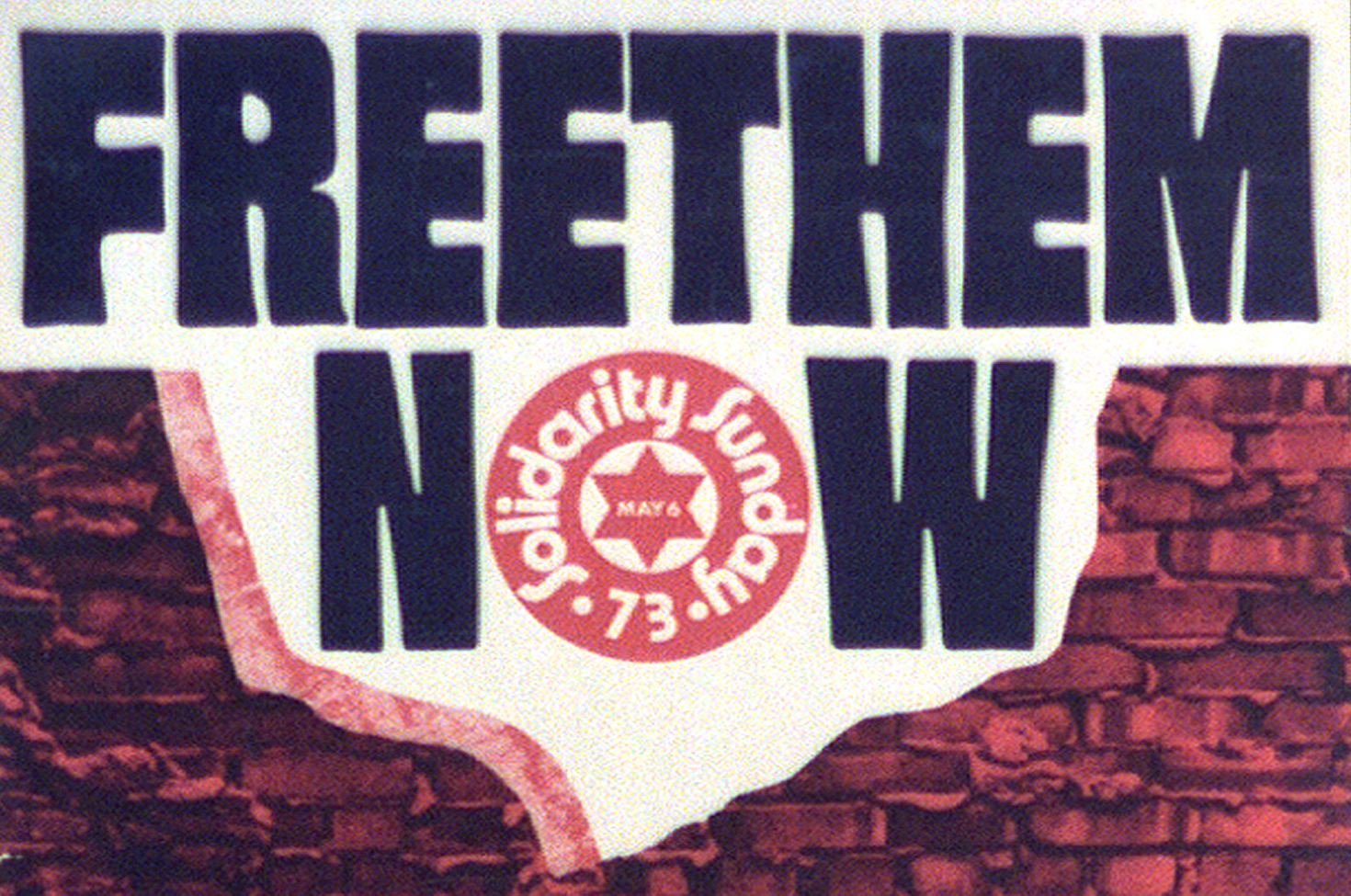
Poster for Solidarity Sunday, May 6, 1973. Library of Congress, Prints and Photographs Division.
Each issue of Lapham’s Quarterly addresses a theme—States of War, States of Mind, Food, Youth, Animals—by drawing on primary sources throughout history, finding the rhymes and dissonances in how these topics have played out and been perceived over the centuries. In this series, we open up the sleuthing beyond our staff and four annual themes by letting historians and writers share what they have come across in their recent visits to the archives.
This week’s selection comes from Chris Cander, author of The Weight of a Piano, now available from Knopf.
In my novel The Weight of a Piano, protagonist Katya Zeldin and her family emigrate from Leningrad to the United States in the early 1980s. I knew their journey wouldn't be easy, but to fully understand the challenges they would face, I watched the documentary Refusenik. This film, which was written, directed, and produced by American Israeli filmmaker Laura Bialis in 2008, is a retrospective chronicling the thirty-year international human rights campaign to free more than 1.5 million Soviet Jews who tried to escape the pervasive anti-Semitism of post–World War II Russia.
After Stalin withdrew his support of Israel, Jews were trapped behind the Iron Curtain with no chance to rise up or to leave. At best, they were discriminated against and denied freedom to practice their religion. At worst, Jews were surveilled by the KGB, fired from their jobs, arrested on false charges, detained in psychiatric hospitals and gulags, and refused permission to emigrate. Even though Russia did not care for them, it was considered traitorous to want to leave. Most were denied exit visas and became what they called refuseniks, exiled within their own country.
Yet as the documentary illustrates, there was a grassroots effort by activists both inside and beyond the USSR to advance the cause of Soviet Jewry. With little money and no established political connections, people like Si Frumkin and Zev Yaroslavsky began a nonviolent movement that crossed ethnic, racial, and religious boundaries to become part of one of the most successful human rights movements in history.
Their efforts are humanized in the film through first-person accounts by refuseniks, interviews with key activists, video of marches and demonstrations, and rare bits of footage that had been smuggled out of the Soviet Union. Over time, the movement gathered enough momentum and visibility to command the attention of the U.S. government. Years of protests, secret meetings, social exchanges, and political pressure culminated in Freedom Sunday for Soviet Jews, a political rally held Sunday, December 6, 1987, the eve of the Washington, DC, summit between Soviet premier Mikhail Gorbachev and U.S. president Ronald Reagan. An estimated 250,000 people demonstrated on the National Mall demanding that Gorbachev extend his policy of glasnost to Soviet Jews by putting an end to their forced assimilation and allowing their emigration from the USSR. The message was received, and Gorbachev granted exit visas to 127,000 refuseniks within two months. Two years later, everything ended: the Berlin Wall came down, the Soviet Union collapsed, prisoners were released, the gates to freedom were opened at last.
A handful of students changed the course of Jewish history, transformed the American Jewish agenda, and imposed a human rights agenda on American foreign policy. Refusenik illustrates how individuals—mostly young people—can mobilize a movement, overcome social and political obstacles, and literally change the world.

Want to read more? Here are some past posts from this series:
• Preston Lauterbach, author of Bluff City: The Secret Life of Photographer Ernest Withers
• Rosellen Brown, author of The Lake on Fire
• Patricia Miller, author of Bringing Down the Colonel
• Monica Muñoz Martinez, author of The Injustice Never Leaves You
• John Wray, author of Godsend
• Imani Perry, author of Looking for Lorraine
• Ken Krimstein, author of The Three Escapes of Hannah Arendt: A Tyranny of Truth
• Scott W. Stern, author of The Trials of Nina McCall
• Katherine Benton-Cohen, historical adviser for the film Bisbee ’17
• Nicholas Smith, author of Kicks: The Great American Story of Sneakers
• Victoria Johnson, author of American Eden
• Anna Clark, author of The Poisoned City: Flint’s Water and the American Urban Tragedy
• Christopher Bonanos, author of Flash: The Making of Weegee the Famous
• Linda Gordon, author of The Second Coming of the KKK
• Elizabeth Catte, author of What You Are Getting Wrong About Appalachia
• Ben Austen, author of High-Risers: Cabrini-Green and the Fate of American Public Housing